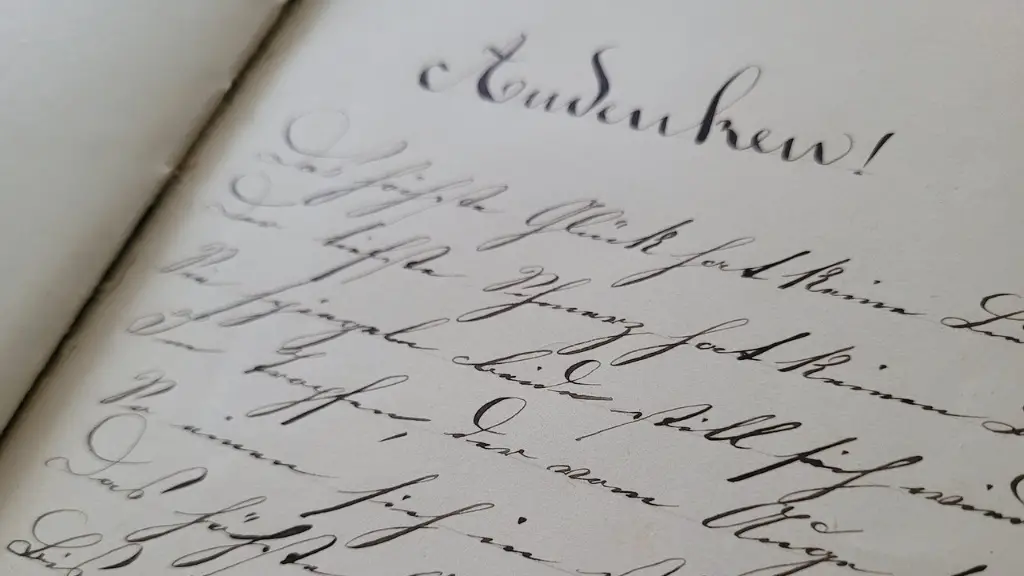Why is Poetry Important for Students?
Poetry is an essential form of writing that can be used to express ideas, feelings, and stories. It has been an important part of literature for centuries, and can help children develop critical thinking skills and creativity. While poetry is often seen as a form of artistic expression, it can also be a valuable educational tool for students. Here are some reasons why poetry is important for students.
Fostering Imagination and Creativity:
Writing poetry is a powerful way to boost children’s creativity. It can help them to brainstorm ideas as well as explore and express their own thoughts and feelings. Through poetry, kids can be encouraged to express their unique perspective on the world and use their imagination in new ways. By encouraging children to write poetry, they can tap into their own creativity in order to gain a better understanding of themselves, the world around them, and the people in it.
Promoting Critical Thinking and Problem-solving:
Writing poetry can also help students practice problem-solving skills. Poems often require readers to think deeply about a subject in order to make sense of it. In addition, poetry can help students develop their critical thinking skills and learn to analyze, synthesize, and interpret data. As students read and write poems, they can practice evaluating facts, analyzing their own work, and drawing conclusions.
Demystifying Language:
One of the most important elements of writing a poem is conveying meaning through language. As a result, writing poetry can help students gain fluency in the English language, develop a better understanding of grammar, and increase their vocabulary. By mastering how to use language effectively, students can build the confidence they need to become more skilled writers, communicators, and speakers.
Immersing Students in Cultural Traditions:
By reading poetry, students can gain knowledge of the different cultures and geographies that created it. Tapping into the traditions and histories contained within the words can give students a new appreciation for the works. Additionally, reading and analyzing works by experienced poets can provide valuable guidance and insight into the development of good writing habits.
Encouraging Self-reflection and Self-expression:
Writing poetry is an effective way for students to express their ideas and feelings. It can help them engage in self-reflection and gain greater self-awareness. It can also give them a safe space to explore the depths of their own emotions. By writing out meaningful experiences, students can form deeper connections with themselves and the world around them.
Providing Stress Relief:
Writing poetry can offer an important form of self-care for students. Focusing on the art of writing can be a great way to reduce stress and improve mental health. By engaging with poetic language, they can take a break from their problems and immerse themselves in creativity. Writing poems can be a great outlet for emotion and can help them express their feelings in healthy ways.
Exploring Real World Concepts with Ease:
Poetry can be a great way to confront difficult topics, compare and contrast perspectives, and explore global issues. Through the use of metaphors and imagery, students can better understand complex concepts in an interactive way. Engaging with emotional subject matter can help them develop empathy and a greater understanding of the world around them.
Nurturing Confidence and Independence:
Writing poetry can also be an effective way for students to gain confidence in their writing abilities. It can help them understand the creative process and learn to trust their own voice. By providing a safe space for students to express themselves, they can gain greater independence and self-assurance.
Connecting with Nature and With Others:
Writing poetry can be an effective way to appreciate nature and connect with the world around us. Through poetry,students can explore their own relationship with the natural world and gain a deeper sense of appreciation for the beauty that surrounds them. By writing poems, they can also express empathy and form stronger connections with other people.
How to Include Poetry in the Classroom?
Teaching poetry in the classroom can be as simple as having students read a few poems and discuss them as a group. Teachers can assign specific poems for students to interpret, or they can give students the freedom to choose their own works. Additionally, teachers can incorporate poetry writing into their lessons. This can be a great way to practice critical thinking and comprehension skills.
Ways Poetry Can Promote Positive Growth:
Writing and reading poetry can help students grow in many ways. It can foster critical thinking, creativity, imagination, self-awareness, and empathy. It can also give them the confidence they need to become more independent and strong writers. By understanding the power of poetry, teachers can help their students gain a greater appreciation of literature, culture, and the world around them.
Gaining New Perspectives on Life and the World:
By exploring different works of poetry, students can gain a new appreciation for the beauty of the written word. They can gain insight into different perspectives and cultivate a broader understanding of the world. Additionally, engaging with poetry can help students empathize with others and recognize their own feelings in a deeper way.
Developing Resilience and Coping Skills:
Writing poetry can be a great way for students to cope with the struggles of life. By capturing the complexities of their own emotions, they can develop resilience and practice self-care. Through writing, they can also explore different perspectives, gain insight into their own feelings, and practice expressing their emotions in healthier ways.
The Value of Teaching Poetry to Students:
Including poetry in the classroom can help children learn to express themselves, think critically, and explore different perspectives. It can help them develop empathy, gain greater self-awareness, and appreciate the beauty of the natural world. Poetry can also encourage creative thinking, problem-solving skills, and improved fluency in the English language. By understanding the power of poetry, teachers can provide their students with a powerful tool to learn and grow.



